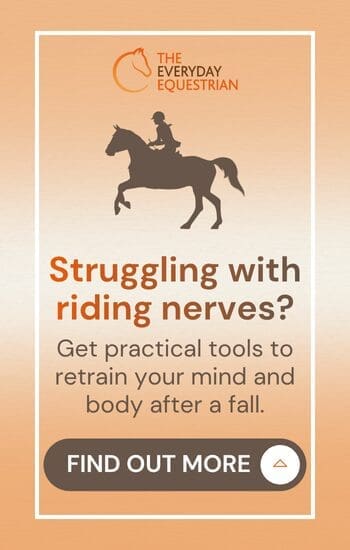Do we take worming horses seriously enough?
www.theeverydayequestrian.co.uk
Worms, or more correctly, internal parasites, can be at best a nuisance or at worst fatal to horses. There are so many different types, it can be difficult to know how best to manage them. The constant challenges of poo-picking and maintaining horse pasture, of choosing which type of wormer (anthelmintic) to use at which time of year, and of assessing the effectiveness of the products selected, mean that many owners simply follow a basic plan of worming all horses every 3 months. In the past, this programme of 13 week intervals between worming treatments, has been actively promoted and advertised, and is a strategy which many horse owners follow. It’s easy isn’t it? Use one product every 13 weeks, for all horses, and we get peace of mind that we’re taking care of our horses.
Unfortunately, this widespread and indiscriminate use of worming drugs, and their associated active chemical ingredients, is causing a dangerous but unseen issue; worms are increasingly becoming resistant to the chemicals which we are using. What does this mean? Well drug companies are not actively researching or developing new chemicals to use in the fight against equine internal parasites (the market simply isn’t considered large enough! Yes, I know…). Essentially, when the drugs we have available no longer work, then we have no means to effectively control worms in horses. More horses will die as a result of infection with internal parasites.
We need to do something about this now. Before it’s too late, and we run out of options.
Research shows that in any particular population of horses, for example on a livery yard, 80% of the worm eggs are ‘shed’ (which means they are passed onto the pasture in the horse’s droppings), by 20% of the population. In other words, out of a livery yard of 20 horses, the main ‘culprits’ for shedding high numbers of worm eggs and therefore contaminating the pasture most, will comprise 4 horses. The rest will be ‘within normal range’ for faecal worm egg counts. So the worming strategy should be entirely based on treating (worming) these 4 ‘high shedders’ and not treating the remaining horses. The latter should still be monitored through monthly faecal worm egg counts.
Think about it logically; when we blanket treat all horses on a yard at the same time, what happens to the worms? Well, the chemicals will kill a proportion of the worms inside the horse’s intestines, but some will survive. We know that some species of worm are already more resistant to certain chemicals than others. The eggs of those worms which survive the treatment will pass out of the horse in the droppings, onto the pasture, and will develop. The horse then grazes the pasture an ingests resistant worms. We then treat the horse after 13 weeks with the same chemical, and we further encourage resistance, and this time an even higher proportion of the worms will be resistant. And repeat.
So what should we be doing as responsible horse owners?
- Poo pick the pasture
This is the single, most effective method of reducing the worm burden in a population of horses.
- Faecal Worm Egg Count (FWEC)
Between March and October, every horse should be monitored through a FWEC. If the FEWC shows a value below 200 eggs per gram, then the horse does not need to be treated. If the value is above this, then an appropriate worming treatment should be given,plus another FWEC after 2 weeksto monitor the effectiveness of the treatment.
Remember that during the winter months, small redworm ‘hide’ within the lining of the intestines (encysted larvae), and these will not show up on FWEC. Any worming plan should include a winter treatment against these parasites.
- Tapeworm
Tapeworm does not show via FWEC testing, so either request a blood test to be carried out by your vet, or use one of the new equine saliva test kits, which have fairly good accuracy. However, there is not currently any indication that tapeworm is becoming resistant, so it would be perfectly acceptable to treat the horse with a chemical currently active against tapeworm.
- Cross-grazing
Equine internal parasites are species specific. Which is great news because they simply cannot survive if ingested by other animals. Cows, sheep, or goats can all be used to ‘clean pasture’ from worms, and help to reduce exposure.
- Treat the high-shedding horses only
We must stop ‘blanket treating’ horses in a population. We need to get our head around specific, targeted worming programmes. This is the only way we will reduce the risk of completed resistance to the chemicals that we have available.
By getting to know our own ‘horse populations’ and by working together as a team, alongside other horse owners, vets and worming companies, we will be doing a far better job of safeguarding our horse’s health and welfare, through effective and targeted worming strategies.


